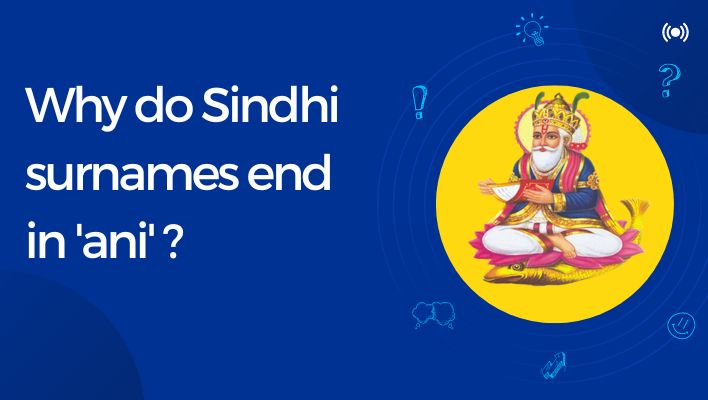If you’ve ever encountered a Sindhi individual, you might have observed that many of their surnames end with the suffix “NI” (or sometimes “ANI”). This isn’t a coincidence; it’s a fascinating linguistic tradition with deep roots in Sindhi history and culture.
Origins and Meanings
- “Ansh”: The Sanskrit Connection The suffixes “NI” and “ANI” stem from the Sanskrit word “ansh,” which means “part of,” “descendant,” or “belonging to.” This highlights the lineage and ancestral connections that are important within Sindhi culture.
- Surnames from Occupations and Places Sindhi surnames often reflected a person’s occupation, caste, or geographical origins. For example:
- “Mirchandani” might indicate a connection to the spice trade (“mirch” meaning spices).
- “Makhija” could possibly denote association with beekeeping or honey trade (“makhi” meaning bee).
- Surnames from Ancestral Names In many cases, the “NI” suffix was added to a prominent ancestor’s name to create a family surname.
- Lachhwani: Might originate from the name “Lachhu,” representing a family descended from an ancestor named Lachhu.
Historical Context: Migration and Adaptation
- Turbulent Times and the Rise of “NI” The widespread use of “NI” emerged during difficult periods in Sindhi history, particularly after the invasions of the 11th century. As communities were displaced and scattered, it became essential to maintain a sense of identity and lineage.
- Regional Variations In some parts of Sindh, particularly the northern regions, the suffix “JA” (meaning “of”) was used instead of “NI”. This is why you might see surnames like “Juneja,” indicating a connection to a place called “Junay”.
The Sindhi Diaspora and Cultural Evolution
- Diverse Influences and Intermingling As Sindhis migrated and established communities across the world, their culture absorbed influences from various regions. This resulted in variations in dialects, clothing, and customs.
- The Importance of “Nukhs” The concept of “nukhs” (meaning “roots”) helped retain a sense of origin and belonging. As families expanded, surnames with the distinctive suffix helped distinguish different branches within the same ancestral lineage.
Conclusion
The “NI” suffix in Sindhi surnames signifies more than just a name ending. It symbolizes a rich and resilient cultural heritage, one that has embraced change and adaptation while preserving its unique linguistic identity. Every Sindhi surname with this suffix carries a story—one of ancestry, occupation, place, and the remarkable journeys of the Sindhi people.

Pingback: Popular Sindhi Surnames List
Pingback: Who are Sindhi's? History of Sindhi population in India
Pingback: Sindhi Lada Songs | सिंधी लाडा - Sindhi.co.in